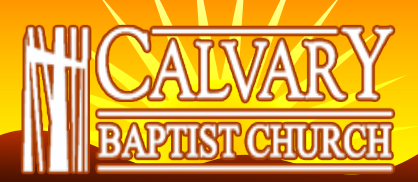The Fall and the First Gospel Genesis 3
The First Sin, The Fall of Man
Vs. 1 Who is the serpent?
Satan using the serpent as his tool. Satan is often cast as
a serpent or Dragon in the Bible.
What prohibition does Eve add to God’s command that was not
part of the original?
“Neither shall ye touch it, let ye die.”
Why do you think Eve added to the word of God?
Perhaps shows her feeling that God was too strict or
unreasonable. Maybe her mistaken understanding of how dangerous the tree was.
What is his temptation, what is he actually offering to Eve?
To be like God, a form of equality with God through
knowledge.
What is the “serpent” for this temptation still be offered
today?
Mormonism, Hinduism, New Age movement, Humanism, Free
Masonry.
Compare the temptation of Eve to that of Christ in Matthew 3
and the love of the world in 1 John 2:16
What does this comparison of temptations teach us?
Satan still uses the same means of temptations today.
Physical, mental and prideful. Eve lost her encounter with Satan, but Jesus was
victorious. If we are to be victorious it must be in Jesus’ power and not in
the power of ourselves.
Where was Adam?
According to verse 6 he was with her.
How did Adam fail Eve?
He did not lead, guide or protect her from the serpent as he
was created to do.
What was the immediate consequence of disobedience?
They knew good from evil and were ashamed, they had lost
their righteous innocence.
Now they were no longer immortal but due to their sin, began
to die from that moment forward.
When there is a lack of spiritual leadership in families
today what are some of the consequences?
Shame, guilt, a quicker death due to stress, drugs,
immorality.
Vs. 7-11 How did Adam and Eve try and deal with their sin?
By covering themselves, hiding from God and blaming someone
else.
First Punishment
What is the curse upon the serpent? The woman?
The man?
First Gospel and First Prophecy (this is the Protoevangelium or First Gospel)
Is there any hope in the midst of the sin and its resultant
curses? Genesis 3:15
Thy seed of woman would ultimately destroy the serpent.
Who is the seed of woman?
Christ is the only one born of the seed of woman without the
seed of man. He would crush the works of
Satan and redeem mankind from sin.
Vs. 20 First Sacrifice, First Forgiveness
What does Eve mean?
Eve means life or life-spring, pointing to the role of
bearing children and in Eve’s case all mankind.
God clothes Adam and Eve with a coat of skins.
Why were their aprons of fig leaves not enough?
The fig leaves were their own works and our own works can
never forgive sin. With the fig leaves, there was no shedding of blood, which
would have been a foreshadowing of an innocent paying for the sin of the guilty
as one day, Jesus, the seed of woman would have to do.
Adam and Eve are driven from the garden and cherubim (guard
angels) are set at the entrance to the garden with a flaming sword to prevent
their reentry and eating of the tree of life.
Does Eden still exist today as a literal place on the earth?
No, without Adam to tend and keep it, the garden would soon
be overgrown and unrecognizable. Later
the flood would forever change it and made it a completely different place.
Conclusion
With the fall of man, sin entered the world. All the pain,
sorrow and death that we now must deal with came from that singular
disobedience of God’s one commandment.
Often, we are challenged by unbelievers that if God is good
and God is omnipotent then why does God allow suffering in the world. The
answer, or course, is that God didn’t allow sin and suffering, but He did allow
free choice. In making man a free moral agent, with a true choice between right
and wrong, sin or obedience, God allowed sin. Without that allowance then man
was not created in God’s image, nor could God have fellowship with man. God
could only have created a higher form of animal, void of understanding, sentience
and will. With the man’s free will and the sin he chose came pain, suffering
and death. The choice would not have been a real choice if there had not also
been real consequences.
Yet God was not surprised by man’s choice and had already
planned for man’s redemption by grace through faith. The second exercise of
man’s free will and this time the consequences would be forgiveness, hope and
peace.





